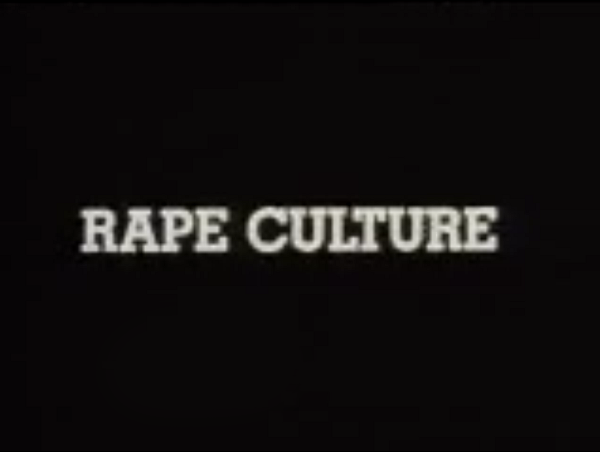Ending the normalization of sexual abuse

Many people are aware of how harmful the initial act of rape is, but it is less commonly known just how seemingly inconsequential statements, questions, or jokes have the effect of re-victimizing someone.
Rape culture is defined by the Oxford Dictionary as “a society or environment whose prevailing social attitudes have the effect of normalizing or trivializing sexual assault and abuse.” In my personal experience, examples of this would be joking about rape or victim blaming or shaming instead of questioning the motives of the offender.
When I was 16 years old, I was given some type of drug and raped by a family friend. I was in and out of consciousness for twelve hours. The bits and pieces I don’t remember will forever haunt me.
I am now twenty-nine years old. I deal with crippling anxiety and battle near-constant depression. Rape culture is awful everywhere, of course, but my hometown seemed to pride itself in being the best at victim blaming.
You may remember the name Daniel Holtzclaw. He is a former law enforcement officer who was convicted of multiple sex crimes in 2015. My hometown is a small town outside of Enid, his hometown, and he is around my age. Throughout his trial, I could barely get on social media because so many people I once considered friends kept voicing their support of him and saying horrible things about the victims–multiple women I consider braver than myself because they were able to come forward while I remained silent.
Anytime I tried to open up to someone about my situation, I was told what I should have done differently instead of given options for how to move forward. I was asked what I was wearing, why I was out so late, or why I didn’t know better.
I had a friend with a father on the police force. One night I gained enough courage to give him a call. I poured my heart out, after which I told him I wanted to press charges. I wanted to keep it from happening to anyone else. I will never forget what he said before I hung up the phone because I felt I had no more options: “Are you sure you want to ruin a man’s life over this?”
The most horrible part of it all is that I am not alone in this. In an interview with Mackenzie Masilon, the Prevention Coordinator for the Oklahoma Coalition Against Domestic Violence and Sexual Assault and also a Rape Advocate for the YWCA, said reactions like this are far too common. They are so common, in fact, that their coalition has an advocate who will accompany victims to the police department or court proceedings “so that they are not bullied or blamed or harassed by any members of the police department.”
Mackenzie also stated that rape culture can continue to make the life of a victim of sexual assault more difficult. She said, “Rape culture is constantly re-traumatizing and re-victimizing the victims, and it reinforces the beliefs and ideologies of individuals in society that say it’s okay to blame the victim–that they had it coming or asked for it.”
She also said that we don’t treat most victims of other crimes this way. “The blame is always put on the perpetrator, whereas with rape it’s the exact opposite.”
The National Sexual Violence Resource Center, or NSVRC, says that “rape is the most underreported crime,” and that 63 percent of sexual assaults are not reported to the police. There are some arguments against rape culture that say victims are asked so many questions about their actions because so many people file false reports. The data, however, does not back up that claim. The NSVRC said that the prevalence of false reporting is between two percent and 10 percent, which is comparable to the amounts of false reporting of other crimes.
Mackenzie said she believes the reason so many rapes and sexual assaults go unreported has a lot to do with the pervasiveness of rape culture. Because so many rapes are committed by someone who knew the victim, she says the reason an overwhelming amount of victims are afraid to come forward is that they don’t want to ruin the perpetrator’s life. She always reminds the victim that the perpetrator “didn’t have that thought process when they did this to you.”
According to Rape, Abuse and Incest National Network, which is the nation’s largest anti-sexual violence organization, one out of every six women will be a victim in their lifetime, and one out of every ten rape victims is a male. The chances increase if you are LGBTQ and inflate even more so if you are at the intersection of LGBTQ and being a person of color.
RAINN also mentions that “94 percent of women who are raped experience post-traumatic stress disorder symptoms” following the attack. At least 33 percent of victims contemplate suicide and 13 percent actually attempt suicide. Most victims experience moderate to severe distress and do not need to feel as if their assault isn’t worthy of law enforcement’s time. They need the support of the community in their time of need.
If you or someone you know has been a victim of rape or sexual assault and is struggling, please call the Oklahoma Safeline at 1-800-522-7233 or the RAINN Hotline at 1-800-656-4673. You can also contact your local YWCA, through which you can receive free counseling. For legal advice or assistance you can contact the Oklahoma Coalition against Domestic Violence and Sexual Assault at 405-524-0700 or visit their website, ocadvsa.org for more information.